
News

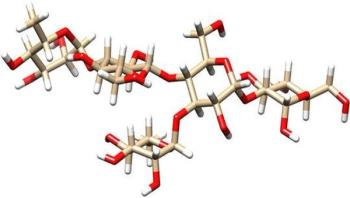
A vaccine against one of the most dangerous hospital germs may soon be available. Scientists from the Max Planck Institute of Colloids and Interfaces in Potsdam and the Freie Universität Berlin have developed a substance that elicits an immune response against the gut bacterium Clostridium difficile. The potential vaccine resembles the sugar structures presented on the surface of the bacterium and therefore primes the immune system to recognize the pathogen itself. C. difficile infects a large proportion of patients in hospitals and kills around 15,000 people a year in the U.S. alone. Doctors could treat the infection with antibiotics, but the bacterium mutates constantly, allowing it to escape the effects of the drugs. The discovery by the Max Planck researchers may pave the way for developing inexpensive and effective vaccines and drugs against C. difficile.

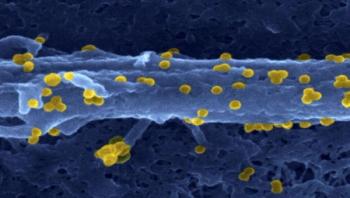
Since 2013, the mosquito-borne Chikungunya virus has spread rapidly through South America and the Caribbean, and is now threatening Southern Europe and the southern U.S. It causes flu-like symptoms with fever and joint pains, which in some cases can last for months with occasional fatalities. No treatment or vaccine exists so far - serving as an urgent reminder of just how poorly the time-consuming process of drug development is able to meet the threat posed by newly emerging viruses. Scientists at the Max Planck Institute for Infection Biology in Berlin have now teamed up with colleagues at the Paris-based Institut Pasteur to validate a new approach in the quest for a therapy - combining high-throughput screening for host cell proteins without which the virus cannot replicate, with so-called 'drug repositioning', i.e. utilizing an existing drug for new indications. They identified two existing compounds that were effective against the virus in an animal model. Their findings not only bring a Chikungunya treatment within potential reach, but also provide the proof of principle that this approach can be rapidly successful for newly emerging infectious diseases.


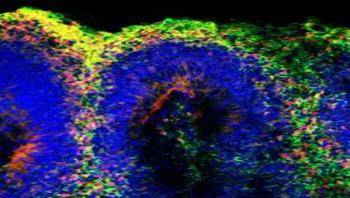
Researchers at University of California San Diego School of Medicine, with colleagues in Brazil and Senegal, have described the first “direct experimental proof” that the Brazilian strain of Zika virus can actually cause severe birth defects. The findings are published in the May 11 online issue of Nature.
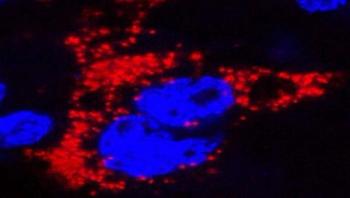
Two mouse models of Zika virus infection in pregnancy have been developed by a team of researchers at Washington University School of Medicine in St. Louis. In them, the virus migrated from the pregnant mouse’s bloodstream into the placenta, where it multiplied, then spread into the fetal circulation and infected the brains of the developing pups. The models provide a basis to develop vaccines and treatments, and to study the biology of Zika virus infection in pregnancy. The research is published May 11 in Cell.
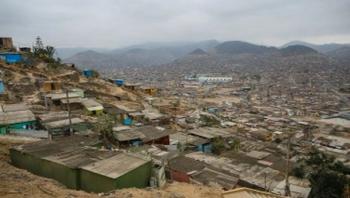
Antibiotic-resistant bacteria most often are associated with hospitals and other healthcare settings, but a new study indicates that chicken coops and sewage treatment plants also are hot spots of antibiotic resistance. The research, led by a team at Washington University School of Medicine in St. Louis, is published May 12 in Nature.











A team of Massachusetts General Hospital (MGH) investigators has developed a device with the potential of shortening the time required to rapidly diagnose pathogens responsible for healthcare-associated infections from a couple of days to a matter of hours. The system described in the journal Science Advances also would allow point-of-care diagnosis, as it does not require the facilities and expertise available only in hospital laboratories.


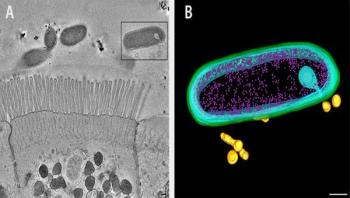
The community of beneficial bacteria that live in our intestines, known as the gut microbiome, are important for the development and function of the immune system. There has been growing evidence that certain probiotics--therapies that introduce beneficial bacteria into the gut--may help alleviate some of the symptoms of intestinal disorders such as Crohn's disease. By studying the interplay between genetic risk factors for Crohn's and the bacteria that populate the gut, researchers at Caltech have discovered a new potential cause for this disorder in some patients--information that may lead to advances in probiotic therapies and personalized medicine.

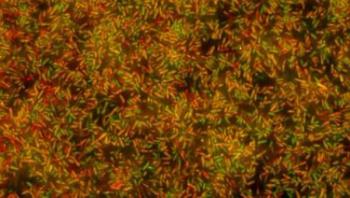
A potential drug therapy developed at the University of Pittsburgh Center for Vaccine Research (CVR) has proven effective against tough bacterial biofilms and a deadly respiratory virus simultaneously. The drug outperforms traditional therapies in the laboratory setting.




Dr. Doussou Touré arrives for work at Coléah Medical Centre in Guinea. She washes her hands from a bucket set up in front of the building, proceeds to a screening area where her temperature is checked and recorded and only then enters the bustling facility that she supervises.